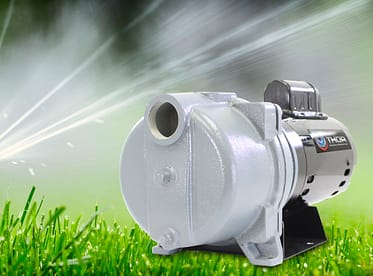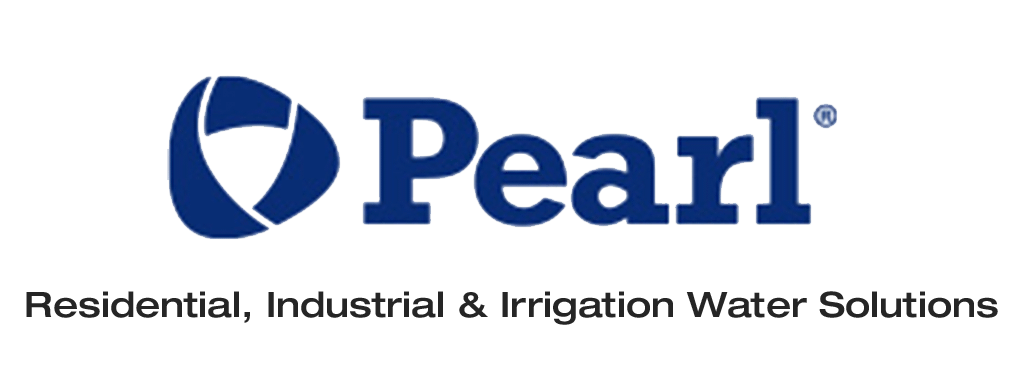
Thor Centrifugal Sprinkler Pump
If you own a beautiful, green lawn that is well maintained, you know the importance a good sprinkler system plays in keeping your yard that way. A well-manicured lawn plays an important role in your home’s curb appeal and the value of your property. It is especially important if you plan on selling your home soon or are part of a condo association that has certain rules or regulations regarding lawn maintenance and lawn care.
More importantly, a lawn that is lush and green and landscaping that is colorful and lively is nice to come home to after a long day of work. Cutting your lawn on a regular basis, hiring a landscaper, and doing basic lawn care are all important ways to care for your grass. Without a proper sprinkler or water irrigation system, however, your beautiful lawn will quickly turn brown and unwelcoming. The cornerstone of a good water system comes down to picking the best sprinkler pump. With that in mind, today, we are going to discuss how to choose the right sprinkler pump and look at different types of pumps and what size water pump you need for your home.
What are Sprinkler Pumps?
If you are like most homeowners, you know what a sprinkler system is but probably are not aware of sprinkler pumps. Sprinkler pumps are specially designed water pumps created to provide high water flow without using excessive amounts of pressure.
Sprinkler pumps are special water pumps used to provide high water flow to your lawn and gardens without using high water pressure. This results in the right amount of moisture for your yard without having so much pressure that it damages your landscaping or plants. They rely on water from nearby water sources and connect to irrigation lawn sprinkler systems. This added feature is great because it saves you money on monthly water bills, as you do not need to rely on treated water from your water utility company or municipality.
Viable water sources for sprinkler pumps include ponds, lakes, and wells. Sprinkler pumps are used to “pump” the water from these sources, providing constant, regulated pressure and water flow.
What Type of Water Pump is Used In Houses?
Water pumps that provide drinkable and usable water to a home are known as domestic pumps, of which there are several varieties. This class of water pump collects water from ground sources so that it can be used for drinking, rinsing, flushing, and general-purpose uses in the home.
The first type of domestic pump is known as a centrifugal pump. They derive their name from the fact that they use centrifugal force to pump water via an electric motor. They are able to handle large amounts of fluids with a high discharge rate. Part of their function is to collect chemical-free, contaminant-free water. Centrifugal pumps serve several purposes, including providing water for homes, swimming pools, lawn sprinklers, and irrigation systems. They can also be used to empty tanks and wells.
The second type of domestic pump is a submersible pump. Submersible pumps are submerged underwater and are most often used in wells. They can be used for irrigation systems, to transfer water from wells to storage tanks, and to drain water from unwanted places in the home, such as a flooded basement.
How to Choose a Sprinkler Pump?
Sprinkler pumps are a great way for homeowners, property managers, and residential property owners to save money while keeping their lawn and landscaping lush, green, and healthy. Choosing the right sprinkler pump for your home is not difficult, but you need to take a few steps to ensure you choose the right one. Below is a brief summary of how to choose a sprinkler pump for your lawn.
Choosing a Good Irrigation Pump Means Knowing Which Size You Need
Choosing a good irrigation pump involves knowing how many sprinkler heads are in your system, their gallons per minute – or GPM – and how many pounds per square inch are required to operate them.
Each sprinkler head in your system has a specific GPM and PSI rating. If all of your sprinkler heads are the same, then your pounds per square inch – or PSI – will be the same.
How to Calculate the Capacity of Your Irrigation Pump?
To calculate the capacity of your irrigation pump, let’s suppose you have a sprinkler system with 15 sprinkler heads and your GPM is 4 per sprinkler head (meaning 4 gallons per minute), then your total GPM requirement would be 60 (4 GPM x 15 sprinkler heads = 60 required GPM).
Taking this calculation into account, when you go to purchase a sprinkler pump, you know that you will need a sprinkler head with 60 GPM and 60 PSI (remember, PSI and GPM are the same, so long as you are using exactly the same sprinkler heads throughout your system). It is essential not to exceed the calculated GPM/PSI, or you risk damaging sprinkler heads or having an erratic irrigation pattern. Try to stick as close to the calculated number as possible.
How Much Lift Do You Need from Your Sprinkler Water Pump?
Next, you will need to calculate how much “lift” is needed to move the water from its water source to your sprinkler pump. The technical term for this is “suction head.” This number has to be less than 25 feet in height but, in reality, should be no more than 5 feet high for optimal performance. To find this number, simply measure the distance from the water source’s surface straight up until it coincides with the elevation of where your pump will reside. This measurement is the suction head.
How Far Do You Need to Pump the Water?
Measure the distance from the pump to your furthest sprinkler head. If this measurement is less than 100 feet, you can use the standard discharge pipe, which is 1-1/2 inches. If this number is above 100 feet but less than 300 feet, you need to move up to the 2-inch discharge pipe. If the range is 300-600 feet, you will need a discharge pipe that is 2-1/2 inches. Anything beyond that and the diameter needs to be increased one size per each additional 300 feet of horizontal pumping distance.
After calculating the discharge pipe size, you will need to know the power requirements for your domestic water pump. Power supplies for sprinkler pumps are dual-voltage and operate at either 115 volts or 230 volts. Larger power supplies do exist, as do gas-powered pumps, in the event that you lack electricity near the sprinkler pump installation spot.
The next part of choosing the right sprinkler pump involves priming the pump. The majority of water pumps are self-priming, which is ideal. Some, however, do you require that you prime the pump prior to use. Follow the instructions that come with the unit to make sure you remove any air pockets (this is the purpose of priming) to prevent damage to the pump.
Typically, you only need to prime a pump once if it is not self-primed.
The last step is to figure out what you want your pump to go. Technically, this should really count as the first step, as this will be pivotal to the calculations above. At any rate, remember that you do not want your pump sitting in an area that will cause a suction head higher than 25 feet. You also want it to be as close to the water source as possible, but not so close that it will get damaged or submerged. Consider the distance from your furthest sprinkler head and whether or not you have an electricity source close to the installation spot.
What to Consider When Buying a Sprinkler Pump
Aside from determining the power requirements, GPM, PSI, suction head, and discharge pipe diameter, homeowners looking for the best sprinkler pump should also consider the life expectancy of the water pump they purchase. In general, a sprinkler pump will last between 2 to 5 years. However, if you properly maintain your pump, prime it properly, and ensure you have the right water pump for your property’s needs, your sprinkler pump could last well beyond the five-year mark.
Cost is another factor to consider and whether or not your sprinkler pump needs a pressure tank. If you want instant water flow, then a pressure tank will be required. However, for most irrigation needs, you will not need a pressure tank for your sprinkler pump. The average cost of a reliable irrigation water pump is about $300-500 depending on the brand and specifications. Though sprinkler water pumps can range in price from $100 for low quality products up to over a thousand for special specification pumps, depending upon the system you need for your property.


